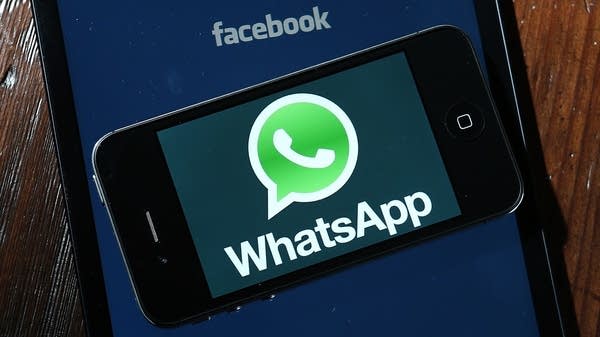WhatsApp outage left Minnesota man with limited access to family in Honduras
The communication app helps immigrants like Roy Guzman keep in touch with far away family members

Facebook and WhatsApp logos are displayed on portable electronic devices in San Francisco. The recent outage took down the main source of communication for a majority of people in Latin America.
Justin Sullivan | Getty Images 2014
Go Deeper.
Create an account or log in to save stories.
Like this?
Thanks for liking this story! We have added it to a list of your favorite stories.


